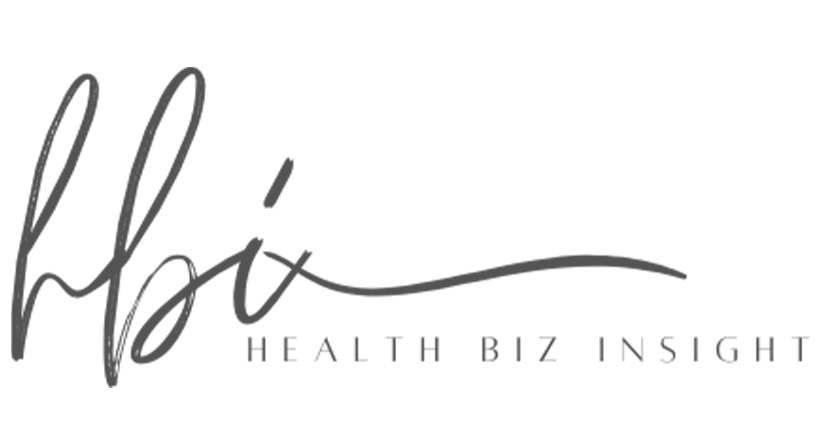
The healthcare industry is vast, complex, and constantly evolving. For many professionals, the idea of transitioning into healthcare from another sector can seem daunting, given the unique challenges and regulatory landscape of this field. However, making a successful transition into healthcare is not only possible but can be incredibly rewarding for those with the right mindset, skills, and adaptability.
As someone who started in human resources and operations before co-founding Nexus Healthcare, I’ve experienced the transition first-hand. My own journey into the healthcare sector has provided me with valuable insights that I hope will help those who are considering a similar move. Whether you’re coming from finance, technology, education, or another industry, the skills you’ve honed in those fields can be incredibly valuable in healthcare.
In this article, I’ll share advice for professionals breaking into the healthcare industry from other sectors, focusing on how to leverage your existing skills, gain relevant knowledge, and navigate the unique challenges of healthcare.
1. Understand the Importance of Patient-Centred Care
One of the first things to understand when transitioning into healthcare is that this sector is fundamentally about people. At the heart of every decision, process, or innovation in healthcare is the patient. Unlike other industries where the focus might be on profit margins, efficiency, or innovation for its own sake, healthcare decisions must always centre around patient welfare.
In your previous role, you may have been focused on customer satisfaction or client retention. While these skills will certainly serve you well, the stakes in healthcare are significantly higher. You’re not just improving a service; you’re improving lives, often in very tangible ways. This shift in perspective is critical for anyone entering healthcare, and it’s something that should inform every decision you make.
For those transitioning from corporate roles, it’s important to learn how to balance business objectives with patient outcomes. Healthcare organisations, whether they are GP practices, hospitals, or specialist clinics, need to be run efficiently to remain sustainable. However, efficiency can never come at the expense of patient care. As you move into this field, always keep in mind that the patient’s needs come first. This requires a mindset that prioritises empathy, understanding, and ethical responsibility.
2. Leverage Transferable Skills
One of the greatest advantages you have when transitioning from another industry is the wealth of transferable skills you bring with you. Many of the skills you’ve developed in other sectors can be highly valuable in healthcare, even if they don’t seem immediately relevant.
For example, if you come from a finance or operational background, your skills in budgeting, resource management, and data analysis can be critical in managing healthcare facilities efficiently. The ability to make data-driven decisions, streamline processes, and manage resources effectively is crucial in healthcare, especially in areas like hospital administration, medical billing, and the management of GP practices.
If you’re coming from a customer service or sales background, your communication skills will be incredibly valuable. The ability to communicate clearly and compassionately with patients, and healthcare providers is essential. as previously mentioned, in healthcare, the stakes are higher, and clear communication can mean the difference between a positive patient outcome and a serious issue.
HR professionals will find that many of the challenges they faced in their previous roles—managing staff turnover, training, and compliance—are also present in healthcare. The difference is that healthcare staff, from doctors to nurses to administrative teams, are working under intense pressure, often with people’s lives in their hands. Your experience in managing teams, developing talent, and fostering a positive work environment will be critical to the success of healthcare organisations.
3. Build Your Healthcare Knowledge
While transferable skills are incredibly valuable, it’s also important to acknowledge that healthcare is a specialised field with its own unique challenges and regulations. If you’re serious about breaking into the industry, you need to invest time in learning about healthcare-specific issues, regulations, and trends.
It’s essential to stay up-to-date with industry news and trends. Subscribe to healthcare journals, attend industry conferences, and follow key influencers in the healthcare sector. Understanding current issues—such as changes in healthcare regulations, the impact of new technologies like telemedicine, or the challenges of staff shortages—will give you valuable context as you navigate your new career path.
Networking is another important part of building your healthcare knowledge. Engage with professionals who are already in the field. Join healthcare-related groups on platforms like LinkedIn, attend industry events, and don’t be afraid to reach out to individuals for advice or mentorship. Healthcare is a collaborative field, and having a strong network of contacts can open doors and provide you with insights that are difficult to gain on your own.
4. Understand the Regulatory Landscape
One of the key differences between healthcare and many other industries is the level of regulation. Healthcare is a highly regulated field, and for good reason—people’s lives are at stake. Whether you’re working in operations, management, or patient care, you need to have a strong understanding of the legal and regulatory requirements that govern healthcare in your region.
In the UK, for example, healthcare providers must adhere to regulations set by bodies such as the Care Quality Commission (CQC), the General Medical Council (GMC), and the National Institute for Health and Care Excellence (NICE). Compliance with these regulations isn’t optional; it’s mandatory, and failing to comply can result in severe consequences, from fines to the closure of a practice.
If you’re transitioning into healthcare, one of your first steps should be to familiarise yourself with the relevant regulations for your area of focus. Whether it’s patient safety standards, data protection laws like GDPR, or specific guidelines for healthcare professionals, understanding the regulatory landscape is crucial.
5. Be Prepared for the Emotional Challenges
Healthcare is not just a demanding field in terms of skills and knowledge—it’s also emotionally challenging. The weight of working in an industry where life and death are often part of the daily experience can be overwhelming, especially for those who are new to the field. You may find yourself facing situations that require a great deal of emotional resilience, whether you’re dealing with patients who are going through difficult treatments or managing staff who are under immense pressure.
It’s important to acknowledge this emotional component and prepare yourself for it. Healthcare professionals often develop coping mechanisms, such as mindfulness or stress-management techniques, to help them deal with the emotional strain. If you’re coming from a less emotionally charged industry, it’s essential to be aware of these challenges and be proactive about your mental well-being.
Support systems are vital in healthcare, so make sure you surround yourself with a strong network, both professionally and personally. Engage with colleagues who understand the pressures of the field, and don’t be afraid to seek support when you need it. Many healthcare organisations also offer mental health resources for their staff, so make sure to take advantage of these if they’re available.
6. Be Patient with the Transition
Finally, it’s important to recognise that transitioning into healthcare will take time. Healthcare is a complex and highly specialised field, and it may take a while to fully understand the intricacies of the industry. Be patient with yourself and allow time to adjust to the new challenges and opportunities that healthcare presents.
Breaking into healthcare from another industry can be a challenging but incredibly rewarding journey. By leveraging your transferable skills, investing in healthcare-specific knowledge, understanding the regulatory landscape, and staying open to innovation, you can position yourself for success in this dynamic and impactful field.
Healthcare is always in need of fresh perspectives, and professionals from other industries can bring valuable insights that improve the way care is delivered. If you’re ready to make the transition, know that your skills, combined with a commitment to learning and patient-centred care, can make a real difference in the lives of others.
7. Cultivate Strong Interpersonal and Teamwork Skills
Healthcare is a team-based industry where collaboration is essential for success. Whether you’re working in a small GP practice, a dental clinic, or a large hospital setting, every aspect of healthcare requires a coordinated effort from multiple professionals with different expertise. From doctors and nurses to administrative staff and healthcare assistants, each role plays a part in ensuring patients receive the best care possible.
If you’re coming from another industry where individual performance was highly emphasised, you’ll need to adapt to the more collaborative nature of healthcare. Strong interpersonal and teamwork skills are crucial. Working in healthcare means being able to communicate effectively not only with your colleagues but also with patients, their families, and external stakeholders such as suppliers or regulators.
As you transition into healthcare, focus on building relationships based on mutual respect and trust. Effective collaboration can enhance patient outcomes and improve the efficiency of healthcare services, and being an effective team player is essential. Learning to listen, to value the input of others, and to resolve conflicts in a constructive manner are all vital interpersonal skills that will serve you well in your new healthcare career.
It’s also important to develop cultural competence, as healthcare settings often involve working with individuals from diverse cultural and socio-economic backgrounds. Understanding different perspectives and being sensitive to the needs of patients and staff from varied backgrounds is a critical component of providing inclusive and equitable healthcare.
These interpersonal skills, combined with the technical knowledge you’ll acquire in healthcare, will enable you to not only transition smoothly but also thrive in this environment.






